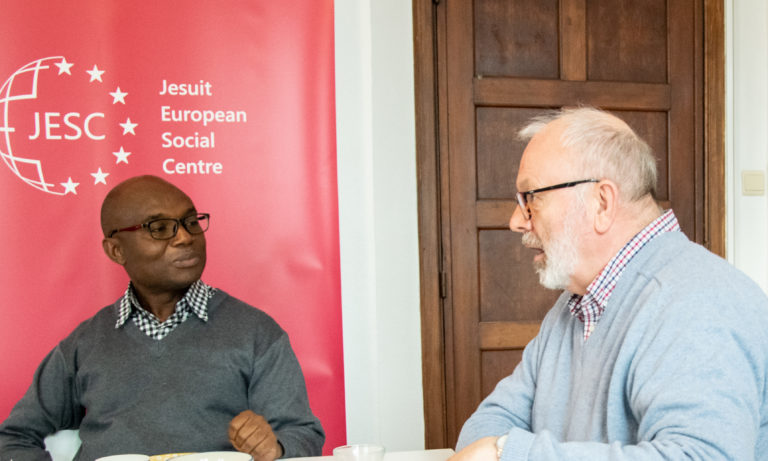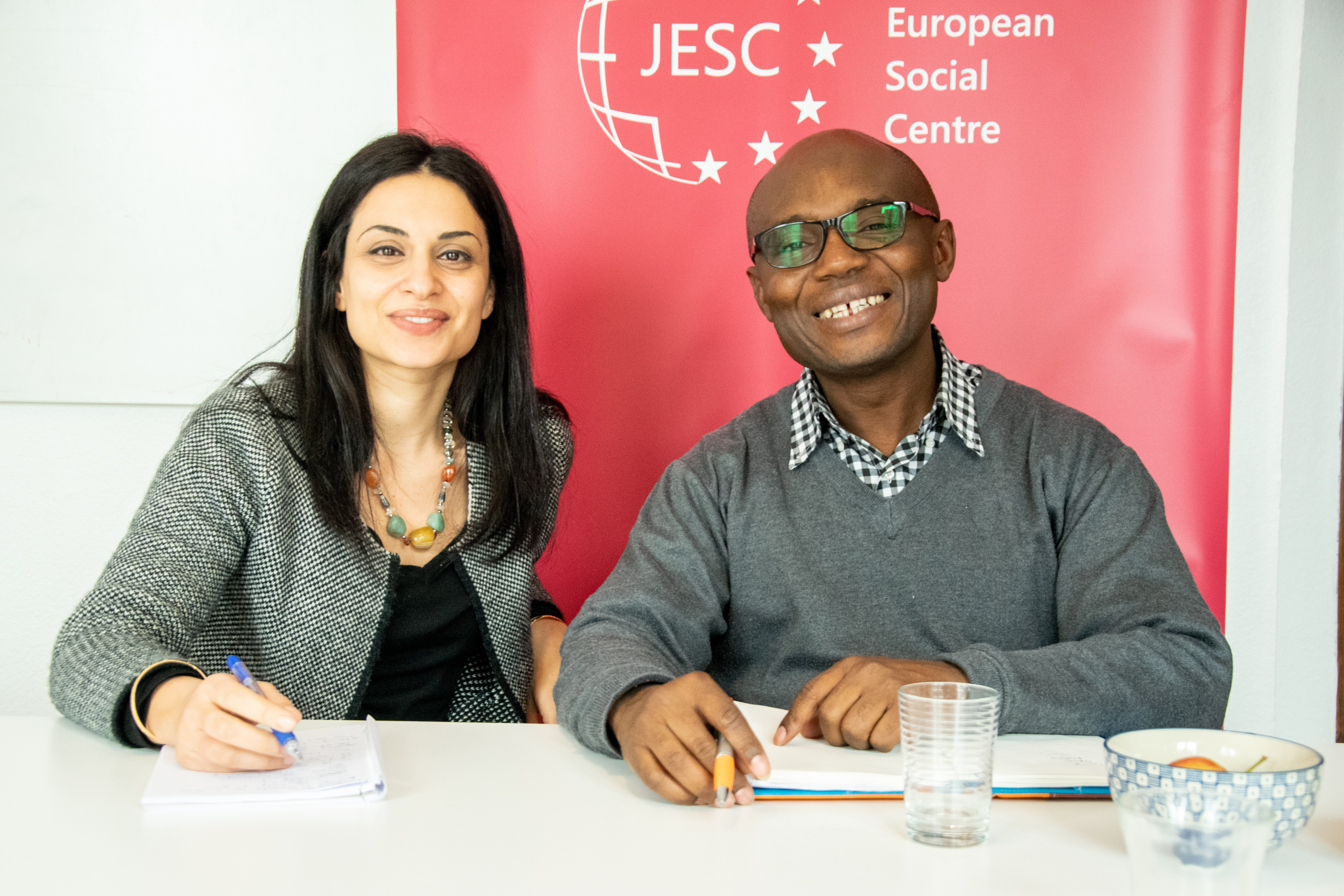
Charles Chilufya SJ, Social Delegate for Africa, tells about what is happening on the continent of Africa in relation to drought, the work of Jesuits and the threads that link Africa and Europe.
The question of drought is becoming widespread in Africa. This I know from our Jesuit ecology and climate justice group. It is affecting southern eastern and central Africa. In east Africa, as I speak, part of Kenya is facing a drought. The same is true with Zambia in the south. It is also true of parts of Congo. Very many places are getting a lot less rain than is customary. In other cases there is a complete drying up! Most people in Africa live in rural areas. They practice subsistence farming, depending on rain and sun. Agricultural produce in many, though not all, countries comes from peasant farmers who are dependent on rain. So drought means a threat to food security.
Jesuits working on issues of ecology in Africa have formed a group called Climate Justice and Food Security. They are working at ground level with local people and they are highly qualified. Some of them have Ph.Ds. and most of them have Masters’ but what gives them particular credibility is that they are working with local farmers. They are not just relying on scientific knowledge produced from the west. They are trying to develop this knowledge and adapt it. They can take local knowledge and adapt it, because it is also important, and they find ways of supporting local people, local farmers, to build their resilience towards climate change. This is a unique resource which other agencies working on the drought issue are eager to draw on.
We have begun to work on knowledge development and communication strategy. This story needs to be told not only in Africa but in Europe as well. To take one example, industrial farming is coming to Africa. Groups like Monsanto are moving in and getting people to use their seeds, but it is not all bad news. For example, in Zambia, the Kassissi Agricultural Training Centre warned the government about the danger of bringing such seeds to Africa. That worked. The Zambian government said no.
Charles Chilufya SJ, Social Delegate for Africa, tells about what is happening on the continent of Africa in relation to drought, the work of Jesuits and the threads that link Africa and Europe.
Drought is becoming widespread in Africa. This I know from our Jesuit ecology and climate justice group. It is affecting southern eastern and central Africa. In east Africa, as I speak, part of Kenya is facing a drought. The same is true with Zambia in the south. It is also true of parts of Congo. Very many places are getting a lot less rain than is customary. In other cases there is a complete drying up! Most people in Africa live in rural areas. They practice subsistence farming, depending on rain and sun. Agricultural produce in many, though not all, countries comes from peasant farmers who are dependent on rain. So drought means a threat to food security.
Jesuits working on issues of ecology in Africa have formed a group called Climate Justice and Food Security. They are working at ground level with local people and they are highly qualified. Some of them have Phds. and most of them have Masters’ but what gives them particular credibility is that they are working with local farmers. They are not just relying on scientific knowledge produced from the west. They are trying to develop this knowledge and adapt it. They can take local knowledge and adapt it, because it is also important, and they find ways of supporting local people, local farmers, to build their resilience towards climate change. This is a unique resource which other agencies working on the drought issue are eager to draw on.
We have begun to work on a knowledge development and communication strategy. This story needs to be told not only in Africa but in Europe as well. To take one example, industrial farming is coming to Africa. Groups like Monsanto are moving in and getting people to use their seeds, but it is not all bad news. For example, in Zambia the Kassissi Agricultural Training Centre warned the government about the danger of bringing such seeds to Africa. That worked. The Zambian government said no.
In Africa climate change is not something to be prepared for. It is here already and already it is affecting people’s lives in a dramatic way. What can Europe do? If you don’t know you can do nothing but if you do know a great deal becomes possible. Africa is tied into Europe and European financial institutions in countless ways. Once you start examining these connections a great deal becomes possible. Our perception is that most Europeans have little understanding of this and little awareness of how climate change s well under way in Africa. Even policy makers are not properly informed because the narrative is very northern driven.
Edmond Grace SJ
Secretary for Ecology


